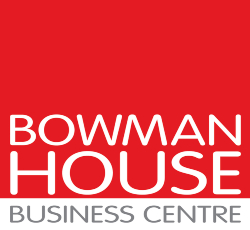In case you missed it see what’s in this section
Let's Talk

Ask the Experts: Starting Your Own Business
Question: What's the best practice when starting your own business?
Starting a business is one of the most exciting (and stressful) things you can do. Over the past 20 years I’ve started a number of businesses – some successful, some not so successful, but each in it’s own right “fun”. To be frank there’s loads of information available from a wide range of sources so I’m not going to cover the normal “stuff” in this article. This article is about “lessons from the trenches” and these are very much based on my own experience. I believe that to be successful in a new business there are fundamentally three things that you’ve got to get right:
- Set things up so you don’t go to gaol – Corporate Governance
- Have a plan – know what you are doing and where you are going
- Treat your customers like they are the golden goose – because they are!
So let’s look at each of these in turn.
1. Don’t go to gaol – the key to running any business is to understand that as a Director you have a legal duty to make sure certain things happen. If you don’t then there is a probability you could be prosecuted, especially if you are being “frugal with the truth”. To be frank you’ve got to get it really wrong to find yourself in front of a magistrate but none the less there is that probability and it can present a clear and present danger to your assets and well being. Over the years I’ve refined 5 rules to make sure that I stay on the right side of the law:
a) Make sure you understand the legal requirements of being a Director, specifically around corporate governance such as the requirements of Companies House (annual returns, accounts etc); I put the key dates into my online diary and make sure there’s lot’s of alarms and warnings of impending disaster.
b) Make sure you understand the requirements of HMRC (PAYE, Corporation Tax, VAT). In fairness to the “revenue” they normally try to keep you in business rather than put you out of it, the key being to talk to them early and not try to hide anything – my simple rule is total honesty and talk to them early and before they send me a letter if there is a problem – don’t let it become their problem because in the end it WILL be yours and your room for manoeuvre will have considerably shrunk!
c) Put some effort into understanding your responsibility for ensuring a good standard of Corporate Governance. I’ve been a Company Director for around 20 years now and a member of the Institute of Directors for the last 15 and I’m still learning. Here are some of the key principles of corporate governance as listed by the Institute of Directors that are important:
1.c.i. Principle 1: Shareholders should establish an appropriate constitutional and governance framework for the company – Corporate Governance.
c.ii. Principle 2: Every company should strive to establish an effective board, which is collectively responsible for the long-term success of the company, including the definition of the corporate strategy – Vision, Mission and Goals.
c.iii. Principle 3: The size and composition of the board should reflect the scale and complexity of the company’s activities – competence and skills.
c.iv. Principle 4: The board should meet sufficiently regularly to discharge its duties, and be supplied in a timely manner with appropriate information – leadership and management.
c.v. Principle 5: Levels of remuneration should be sufficient to attract, retain, and motivate executives and non-executives of the quality required to run the company successfully –talent management.
c.vi. Principle 6: The board is responsible for risk oversight and should maintain a sound system of internal control to safeguard shareholders’ investment and the company’s assets – Effective management.
c.vii. Principle 7: There should be a dialogue between the board and the shareholders based on a mutual understanding of objectives. The board as a whole has responsibility for ensuring that a satisfactory dialogue with shareholders takes place. The board should not forget that all shareholders have to be treated equally.
c.viii. Principle 8: All directors should receive induction on joining the board and should regularly update and refresh their skills and knowledge – Continuous Professional Development (CPD).
Don’t let any of this put you off – to paraphrase the above principles - you need to ensure that you have a means of effectively manage, lead and govern your company.
d. Protect yourself – everyone makes mistakes. One of my key principles is to protect myself, as far as possible, from the impact of these on my personal assets. To this end I have Directors Indemnity Insurance – so if the worst happens I have some protection against the worst case scenario. It’s worth looking at the Federation of Small Businesses or similar organisation for this, they often offer a package to protect your interests – including help if the “revenue” descend to do a Tax Audit. It’s also worth noting that if you are found to be negligent there is a possibility that your personal assets may be under threat – so £35 a month for an insurance policy is really good value!
Following on from this you really need to make sure that you have adequate statutory insurance cover – these are a legal requirement and not having them could be catastrophic to your business.
e. Get a good accountant. Seriously, it’s a false economy to try and do this yourself (unless you are an accountant that is), or at least engage a competent book keeper. The number of businesses I’ve seen that have imploded because their books are inadequate is very high. Again it is a requirement that Directors ensure that there is good financial recording and reporting in any business. Remember that you have to submit annual accounts for your business whatever its flavour.
2. Have a plan – and write it down! This is important. Without a plan you will go around in circles – believe me there’s a circular path worn in my study carpet so I have first hand knowledge of this. It really doesn’t need to be that detailed to begin with – unless you are trying to raise finance or a loan, in which case I would advise getting your accountant involved – it will save hours of wasted effort.
While it’s very tempting to plan everything in detail, it only really needs to provide a road map to where you want to get to; but here’s the rub – as Dwight D Eisenhower is purported to have said “no plan survives first contact with the enemy”!
This is especially true of “business plans”. So my advice is to have a clear long term goal or vision of where you want to get to; and to adapt your plan as things emerge – because they will! But keeping the end goal in sharp focus will provide you with a critical compass to guide you.
There’s loads of information and advice available on how to write a business plan – there’s a particularly good article by Morris Owen on this site – but to be blunt and without wishing to offend anyone, in my experience a plan has to be usable, reviewed and updated continuously if it’s to be anything other than waste paper – so make sure it’s simple, easily understood and useful to YOU in the first instance. I use an online system called LivePlan (http://www.liveplan.com), which is pretty good and allows you to update and track performance against your plan.
The other thing to remember is that it is your business and not the banks, so don’t let the banks and others force you to do things that don’t add value to your business, just so they can tick a box. I’ve lost track of the number of business plans I’ve written, re-written and written again only to be told “computer says no” for the most bizarre of reasons. For instance I had one loan application rejected because I’d invested too much of my own money into my business and the share holder value was below zero on one years balance sheet – a few years ago to be sure but a crazy example of just how the banks can waste your time jumping to their tune.
There is one common factor in all of my businesses that have been successful – I’ve had clear and unambiguous goals and a clear plan to reach them. As far as possible I’ve also done it from within my own resources and cash flow – being in hoc to a bank has rarely worked for me and has invariably placed a large burden on the business. The business plan has always been mine and provided a route map for my businesses.
The other thing I’d just like to point out is that it’s very very easy to spend money. It’s not so easy to earn it! So my advice is “don’t be taken in by large and elaborate marketing plans, expensive consultants or fancy offices”, spend your money wisely and try to get the most value for every £1 you spend.
3. Treat your customers like they are the golden goose. OK here’s the thing – without customers you don’t have a business – period! So make no bones about it your customers are very very important to your future well being and success.
They also pay your bills, your wages and create value in your business so make sure you can deliver what you sell and if you can’t then don’t sell it!
My second piece of advice is “don’t work for nothing”. The great temptation when you start in your own business is to think you are “taking a loss leader”, "working with your clients to establish a relationship”, or providing “samples” of your product to stimulate sales. To be honest in pretty much all of the above cases you are being a little self delusional. All you are doing is giving your business away. Remember, if you are truly offering value to your clients they won’t have any problem paying for your products or services. I firmly believe that there is no such thing as a “loss leader” in a small business – it’s just working for nothing, or giving your product away, and it’s the quickest way to not have a business.
So back to treating your customers like they are the golden goose; cherish them, love them, add value to their lives and be their friend; this way they will come back to you again and again – and perhaps more importantly refer you to their friends and clients. There is nothing better than referral business. To be clear on this though, I’m not saying that your customer is always right and you should let them mistreat or take advantage of you – I’ve “sacked’ more customers than I care to remember, the key criteria being that they constituted “bad business” for me.
What I’m saying is that you should treat all of your clients and customers with respect and deliver what you agree, when you agree to deliver it and most importantly to the highest quality possible within the context of your agreement. I always look to over deliver on what I agree – this way I ensure that my customers remain happy they keep coming back. But remember this has to be mutual – they should also treat you with respect, pay you what they agree and when they agree to pay you.
Again bad business is not something you should tolerate – if your client doesn’t pay you or changes the goal posts without agreement, drives the price down below what is profitable or treats you with contempt, then this is “bad business”.
You will have much more success if you talk to your customers and clients frequently – repeat business is much easier to secure than new business. I have a CRM system that prompts me to stay in contact with all of my customers.
Finally, I hope that this article has been of use. Being in business is brilliant fun. I have control of my life and no one can influence me against my wishes, I have freedom to do it my way. That said there is always a down side and it can become all consuming.
So my final piece of advice to the new entrepreneur is “Don't forget to live”. There is a general mind-set among new entrepreneurs that putting in tons of hours now will lead to an awesome life in the future. I’m all for diligence, and even sacrifice, but it must be tempered with other life rhythms that ensure that you get the benefit of your endeavors. I have two absolute rules: “Saturdays are mine” and “I need to sleep”. These rules ensure that I have a chance of getting benefit from my efforts. Good luck.
Weather in Swindon
Listings



















